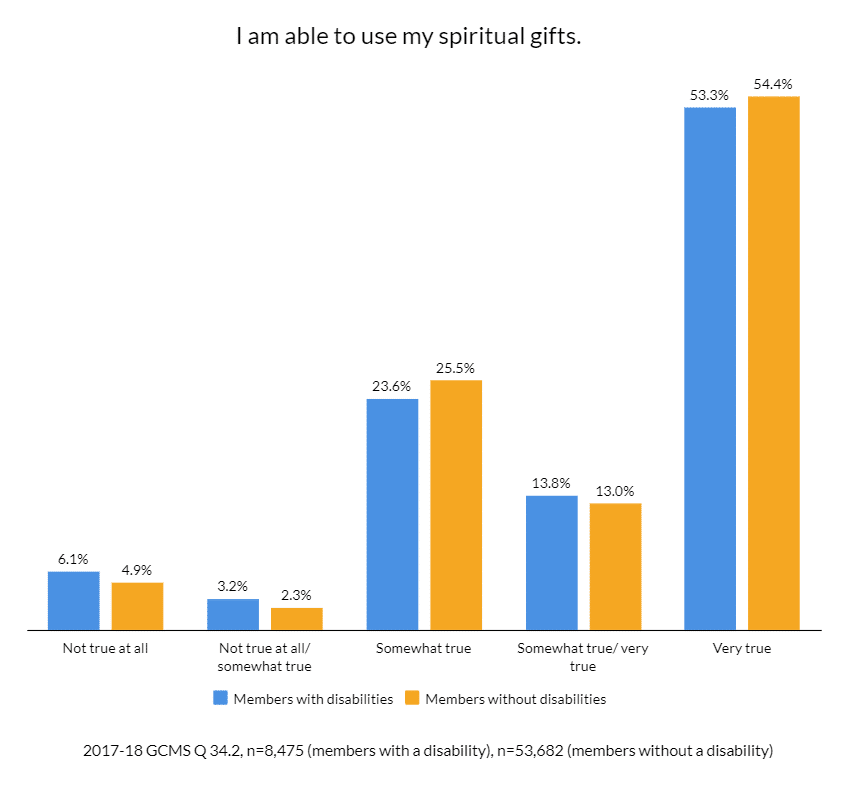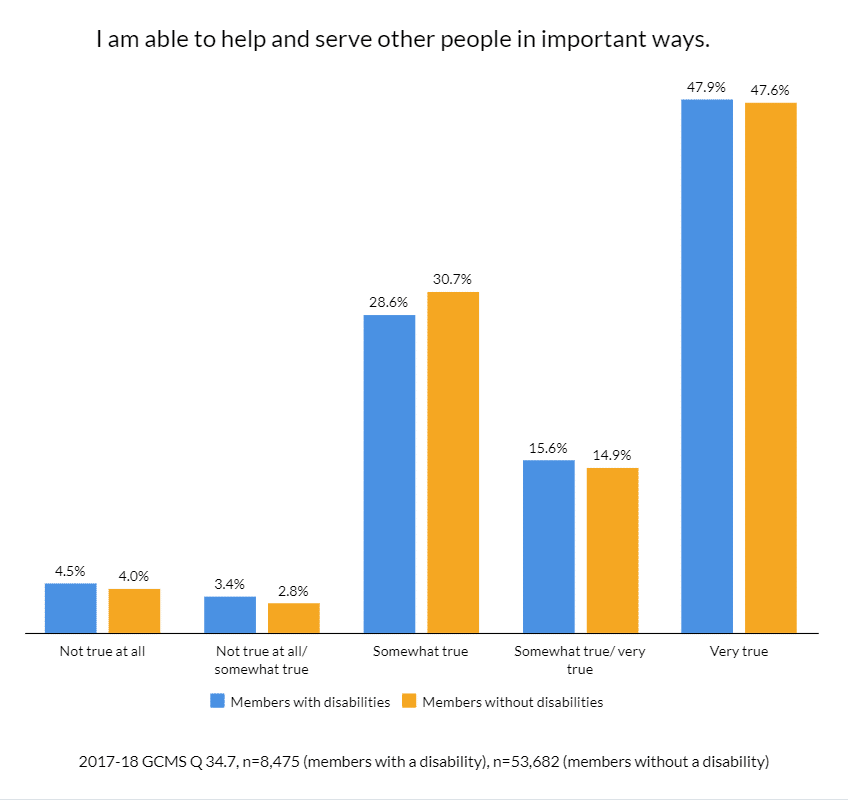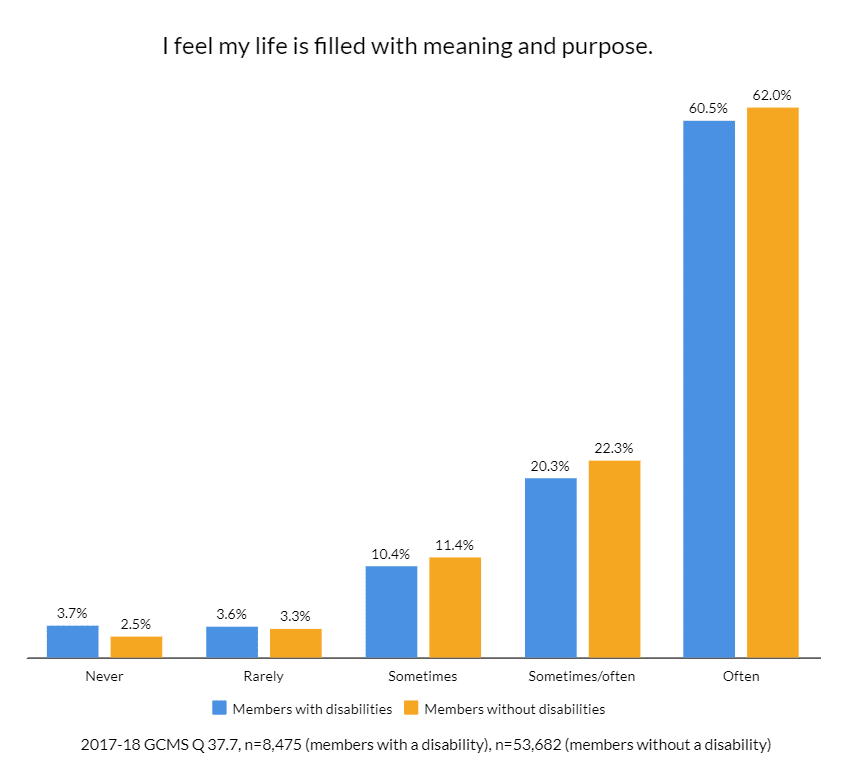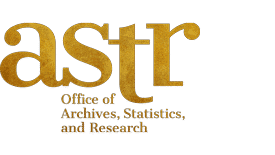Have you ever considered how God is able to use anyone, even in spite of their weaknesses? I particularly think of the story of Moses found in Exodus 4:10–12:
Moses said to the LORD, “Oh, my Lord, I am not eloquent, either in the past or since you have spoken to your servant, but I am slow of speech and of tongue.” Then the LORD said to him, “Who has made man’s mouth? Who makes him mute, or deaf, or seeing, or blind? Is it not I, the LORD? Now therefore go, and I will be with your mouth and teach you what you shall speak.” (ESV)
Moses thought he had a good understanding of his limitations, but God had other plans for his life. Once Moses got out of his own way and let God work, he was led to do amazing things. This story is but one biblical illustration of how God can use anyone to do something great.
In our last blog, we examined the involvement of members with a disability in church ministry. Today we will take a look at how members with a disability are able to use their spiritual gifts and be used by God to serve others.
The 2017–2018 Global Church Member Survey (2017–18 GCMS) asked members to respond to the statement, “I am able to use my spiritual gifts.” Interestingly, those with a disability responded very similarly to those without. Only 6% of respondents with a disability admitted that they did not feel that statement was true at all (as compared with 5% of those without a disability). Overall, 91% of those with a disability felt this statement was true to one degree or another (as compared with 93% of those without). Interestingly, slightly more than half in each category said it was very true in their case. This data points to Adventist churches—specifically at the local level—finding ways of utilizing the spiritual gifts of all members.

Similarly, the 2017–18 GCMS asked members if they felt they were able to help and serve others in important ways. Again, only a small percentage of those with a disability (5%) shared that they felt this was not true at all (as compared with 4% of those without). Over nine out of ten (92%) respondents with a disability agreed to one degree or another that they were able to help and serve others in important ways (as compared with 93% of those without), and about half of each group confirmed that it was very true for them. Again, these data are encouraging as they indicate that members with and without a disability can find meaningful ways to be involved with others in their church family.

Finally, respondents of the 2017–18 GCMS were asked if they felt their life was filled with meaning and purpose. It is encouraging that 82% of respondents with a disability agreed this was true sometimes-often or often (as compared with 83% of those without a disability). It is clear that many Adventist members with disabilities find belonging, meaning, and purpose in their walk with Christ and in their church life.
Being encouraged by these findings, let us also not forget those who felt it was somewhat true, not true at all, or in between categories. Those people may need additional support and help.

When you consider your own local church, do you have any members with a disability? How do you think those members would rate their experiences in your church? Are they loved and accepted, able to participate in ministry? Are they included socially? Are they offered opportunities to minister to others? If you aren’t sure of the answers to these questions, the best way to find out is to get to know disabled members and ask!
You can find further research findings regarding members with disabilities in these blogs:
- Involvement of People with Disabilities in the Church (Part 1)
- Disabilities and the Seventh-day Adventist Church
For more research findings on the total sample, please see the Meta-Analysis report.
Created in collaboration with the Institute of Church Ministry
Published by ASTR on 02-09-2022

